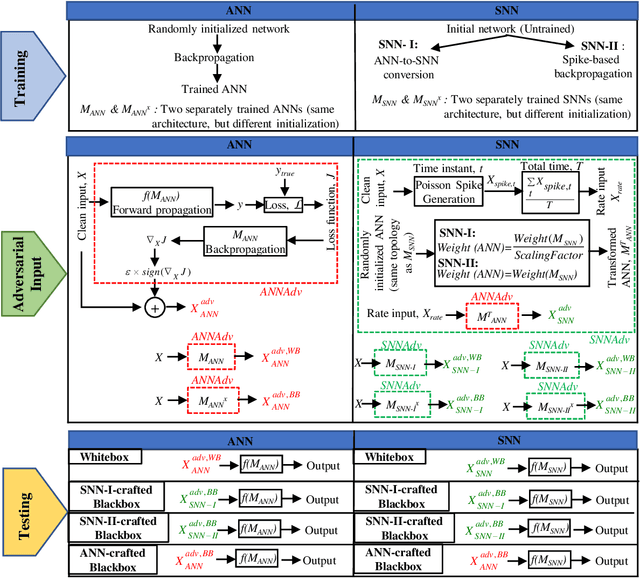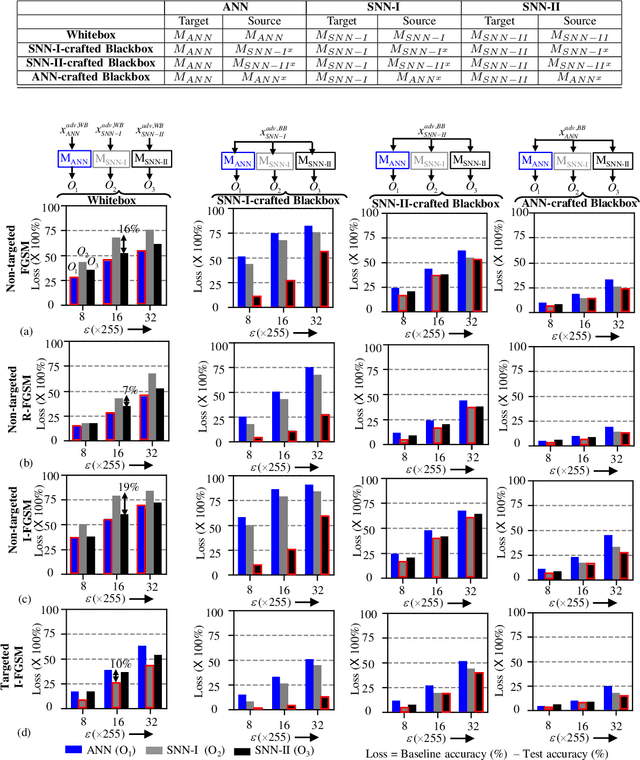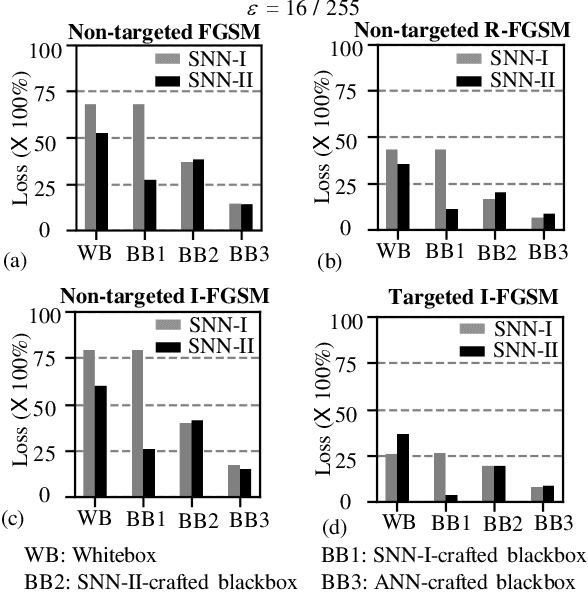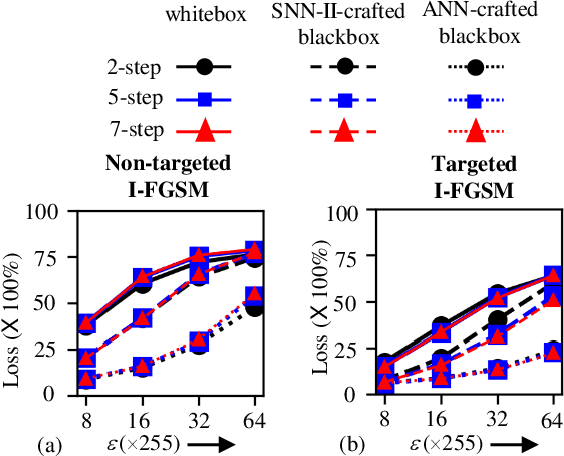Saima Sharmin
Inherent Adversarial Robustness of Deep Spiking Neural Networks: Effects of Discrete Input Encoding and Non-Linear Activations
Mar 23, 2020



Abstract:In the recent quest for trustworthy neural networks, we present Spiking Neural Network (SNN) as a potential candidate for inherent robustness against adversarial attacks. In this work, we demonstrate that accuracy degradation is less severe in SNNs than in their non-spiking counterparts for CIFAR10 and CIFAR100 datasets on deep VGG architectures. We attribute this robustness to two fundamental characteristics of SNNs and analyze their effects. First, we exhibit that input discretization introduced by the Poisson encoder improves adversarial robustness with reduced number of timesteps. Second, we quantify the amount of adversarial accuracy with increased leak rate in Leaky-Integrate-Fire (LIF) neurons. Our results suggest that SNNs trained with LIF neurons and smaller number of timesteps are more robust than the ones with IF (Integrate-Fire) neurons and larger number of timesteps. We overcome the bottleneck of creating gradient-based adversarial inputs in temporal domain by proposing a technique for crafting attacks from SNN.
A Comprehensive Analysis on Adversarial Robustness of Spiking Neural Networks
May 07, 2019



Abstract:In this era of machine learning models, their functionality is being threatened by adversarial attacks. In the face of this struggle for making artificial neural networks robust, finding a model, resilient to these attacks, is very important. In this work, we present, for the first time, a comprehensive analysis of the behavior of more bio-plausible networks, namely Spiking Neural Network (SNN) under state-of-the-art adversarial tests. We perform a comparative study of the accuracy degradation between conventional VGG-9 Artificial Neural Network (ANN) and equivalent spiking network with CIFAR-10 dataset in both whitebox and blackbox setting for different types of single-step and multi-step FGSM (Fast Gradient Sign Method) attacks. We demonstrate that SNNs tend to show more resiliency compared to ANN under black-box attack scenario. Additionally, we find that SNN robustness is largely dependent on the corresponding training mechanism. We observe that SNNs trained by spike-based backpropagation are more adversarially robust than the ones obtained by ANN-to-SNN conversion rules in several whitebox and blackbox scenarios. Finally, we also propose a simple, yet, effective framework for crafting adversarial attacks from SNNs. Our results suggest that attacks crafted from SNNs following our proposed method are much stronger than those crafted from ANNs.
 Add to Chrome
Add to Chrome Add to Firefox
Add to Firefox Add to Edge
Add to Edge